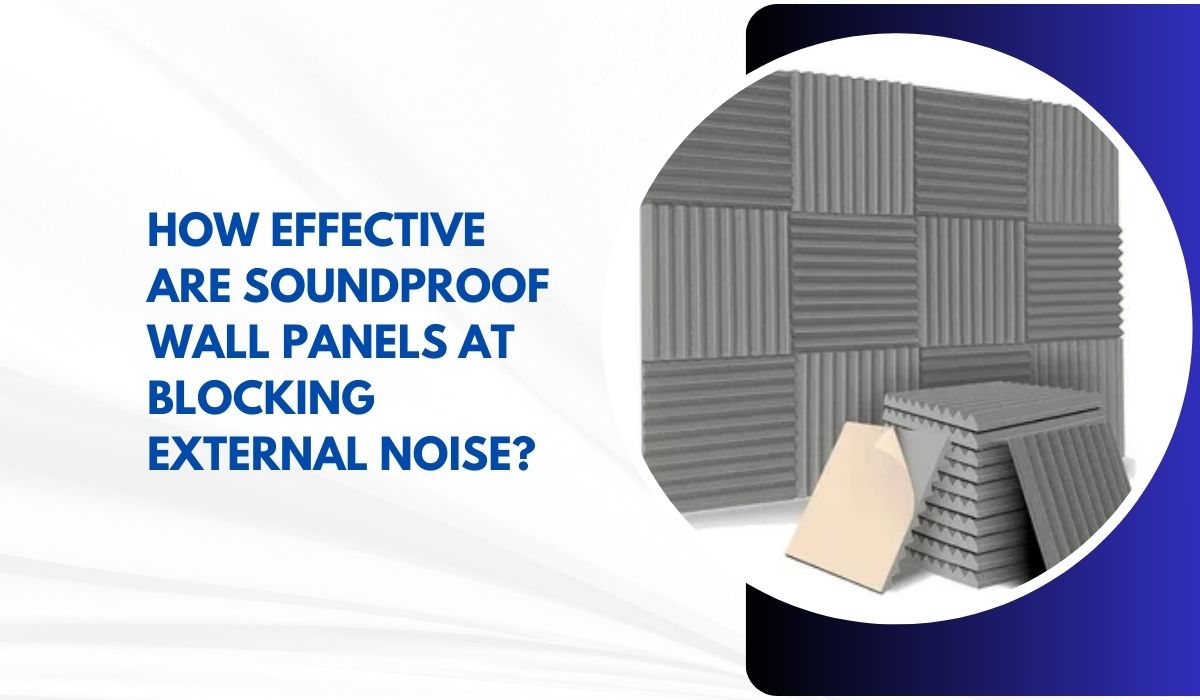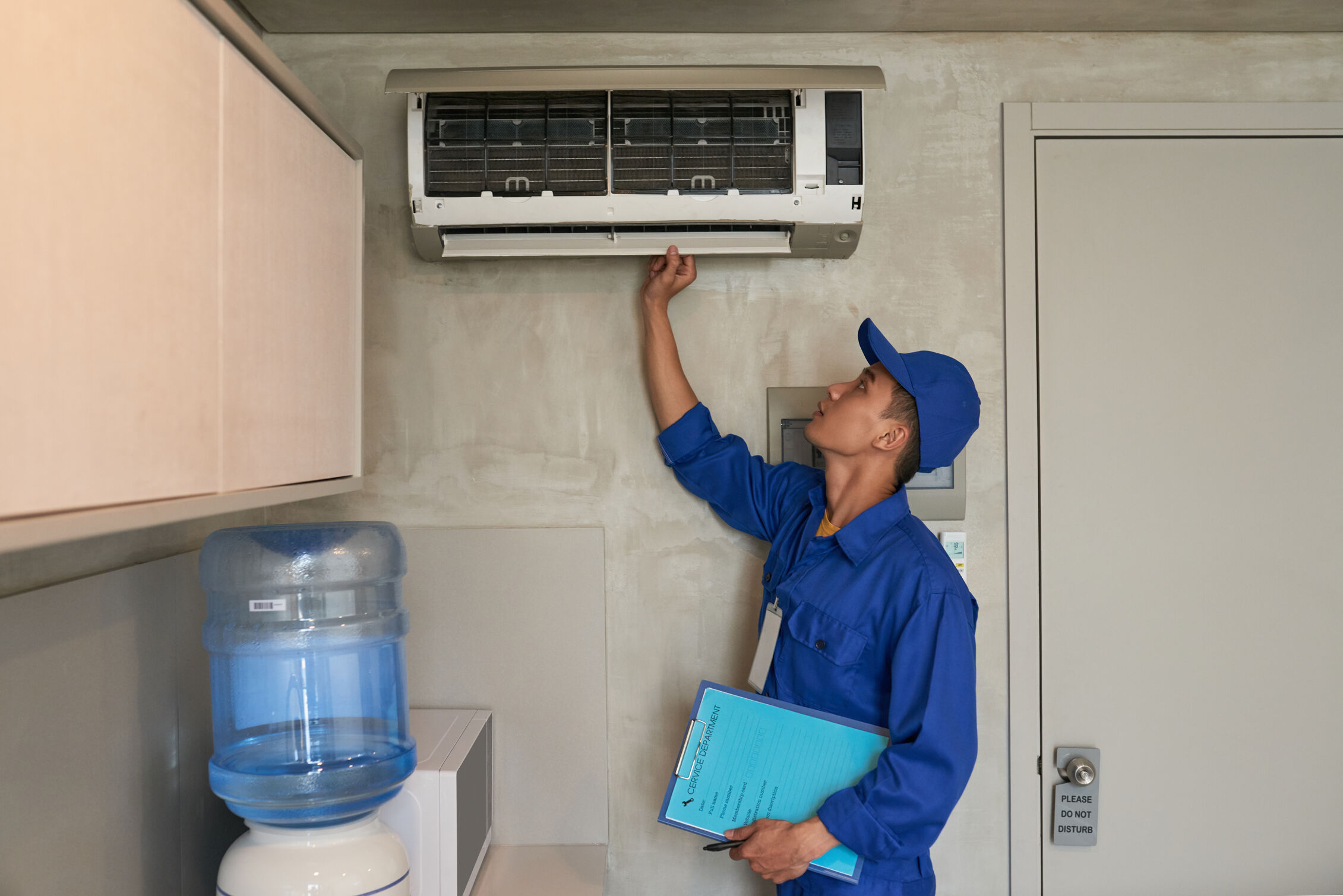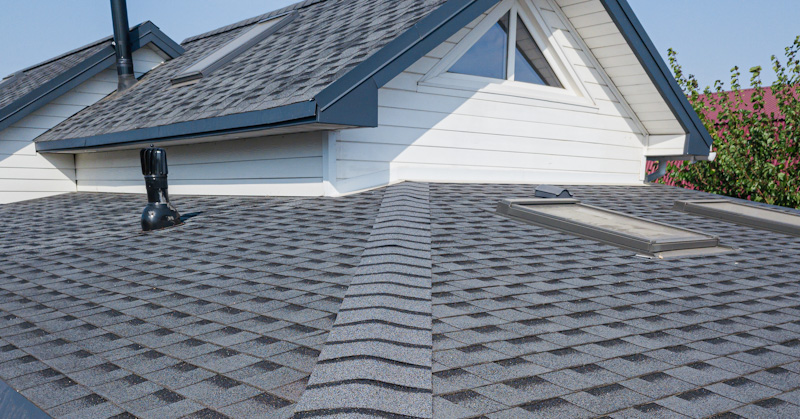Noise pollution is something most people can relate to, whether it’s from traffic, neighbors, or the hum of an air conditioning unit. It’s no wonder that many homeowners and business owners are looking for ways to keep external noise out and make their spaces more peaceful. One of the most popular solutions for this issue is the installation of soundproof wall panels. But how effective are these panels really at blocking external noise? In this article, we’ll explore the effectiveness of soundproof wall panels, how they work, and whether they are the best solution for your noise problems.
What Are Soundproof Wall Panels?
Understanding Soundproofing
Before diving into how effective soundproof wall panels are, it’s important to understand what soundproofing actually means. Soundproofing refers to the process of blocking or reducing sound transmission from one area to another. In this case, soundproof wall panels are designed to block unwanted noise from entering or leaving a room, creating a quieter and more peaceful environment.
What Are Soundproof Wall Panels Made Of?
Soundproof wall panels are typically made from a variety of materials that absorb or block sound waves. Some common materials used in soundproof wall panels include:
- Foam: Acoustic foam panels are commonly used to absorb sound waves and reduce echo in a space. These panels are lightweight and easy to install.
- Fiberglass: Fiberglass panels are denser and more effective at blocking sound compared to foam. They are often used in commercial spaces and can be covered with fabric to blend in with the room’s décor.
- Mass Loaded Vinyl (MLV): MLV is a heavy, dense material that is often used in combination with other soundproofing methods. It helps to block sound transmission through walls and ceilings.
- Mineral Wool: Mineral wool is another effective material for soundproofing. It is made from rock or slag and is used in insulation products to block sound.
How Do Soundproof Wall Panels Block External Noise?
The Science Behind Soundproofing
Soundproof wall panels work by either absorbing or blocking sound waves. To understand how they achieve this, it’s important to know a little about how sound behaves.
Sound waves travel through the air as vibrations, and these vibrations can pass through walls, doors, and windows. When these vibrations hit a surface, they can either be reflected, absorbed, or transmitted through the material. Soundproof wall panels are designed to either absorb these vibrations or block them from passing through the material.
Absorption of Sound
Some soundproof wall panels are designed to absorb sound. These panels are usually made from porous materials like foam or fiberglass that trap sound waves. When sound waves hit the panel, they get trapped in the material, reducing the amount of sound that bounces around the room. This helps to reduce echoes and reverberation, but it’s not always enough to block sound from outside.
Blocking Sound Transmission
For external noise, the goal is often to block sound from passing through the walls. Mass loaded vinyl (MLV) panels, for example, are dense and heavy, which makes them highly effective at blocking sound from outside. When applied to a wall, they create a barrier that prevents sound from traveling through. Other materials, like mineral wool or fiberglass, can also block sound to some extent, but they are more effective when used in combination with other materials.
How Effective Are Soundproof Wall Panels at Blocking External Noise?
Factors That Influence Effectiveness
The effectiveness of soundproof wall panels at blocking external noise depends on several factors, including:
- Material: The type of material used in the wall panels plays a significant role in how well they block sound. Denser materials like mass loaded vinyl and fiberglass are more effective at blocking sound than foam panels.
- Wall Construction: The construction of the wall itself is another important factor. If the wall is already thin or made from lightweight materials, soundproof wall panels will have a harder time blocking external noise. In such cases, additional insulation or soundproofing techniques may be needed.
- Installation: Proper installation is key to the effectiveness of soundproof wall panels. Gaps and cracks in the walls or around the edges of the panels can allow sound to leak through, reducing their ability to block noise. It’s essential to ensure that the panels are installed correctly and that the room is fully sealed.
- Type of External Noise: The type of external noise also plays a role in how well soundproof wall panels perform. Low-frequency sounds, like the rumble of traffic or trains, are more difficult to block than higher-pitched sounds like voices or music. Soundproof wall panels can be more effective at blocking high-frequency sounds but may struggle with low-frequency noise.
Testing Soundproof Wall Panels
To measure the effectiveness of soundproof wall panels, professionals often use a rating system called the Sound Transmission Class (STC). The STC rating measures how well a material or wall system blocks sound across a range of frequencies. A higher STC rating indicates better soundproofing.
For example:
- STC 25: At this rating, most people will be able to hear normal conversations through the wall.
- STC 40: At this rating, loud conversations may be audible, but they will be muffled and difficult to understand.
- STC 50: At this rating, loud conversations are not audible, and most external noises will be blocked.
- STC 60 and above: These walls are highly effective at blocking sound and will prevent even loud noise from passing through.
It’s important to note that soundproof wall panels typically fall in the STC 25 to 40 range, which means they can significantly reduce noise but may not completely block very loud external sounds.

How to Maximize the Effectiveness of Soundproof Wall Panels?
Combining Materials for Better Results
While soundproof wall panels are effective on their own, combining different materials can increase their ability to block external noise. For example, using mass loaded vinyl in combination with fiberglass panels can create a more effective barrier. The dense vinyl blocks low-frequency sounds, while the fiberglass absorbs high-frequency sounds, resulting in a more complete soundproofing solution.
Sealing Gaps and Cracks
Even the best soundproof wall panels won’t be effective if there are gaps or cracks in the walls. Sound can easily travel through small openings, so it’s important to seal any gaps around doors, windows, and edges of the panels. Using acoustical sealant or caulking can help create a tight seal and prevent sound leakage.
Installing Panels on Multiple Walls
In some cases, installing soundproof wall panels on just one wall may not be enough to block external noise. If the noise is particularly loud, you may need to install panels on multiple walls to achieve the desired level of soundproofing. Additionally, don’t forget about the ceiling and floor, as sound can also travel through these surfaces.
Adding Additional Layers
If you’re dealing with particularly loud external noise, you may need to add additional layers of soundproofing materials. Adding a second layer of drywall with a layer of mass loaded vinyl in between, for example, can provide extra sound isolation. This multi-layer approach can dramatically increase the effectiveness of soundproofing.
Common Applications for Soundproof Wall Panels
Home Use
Soundproof wall panels are often used in home theaters, bedrooms, and offices. Homeowners who want to create a quiet environment for watching movies, working, or sleeping can benefit from the noise reduction provided by soundproof panels. For example, if you live near a busy street or airport, installing soundproof panels can help block the constant noise and create a peaceful environment inside your home.
Commercial Use
In commercial settings, soundproof wall panels are often used in offices, meeting rooms, and conference halls. In open-plan offices, these panels help to reduce noise from phone calls, meetings, and other distractions, allowing employees to focus better on their work. In commercial spaces, such as restaurants or hotels, soundproof panels can improve customer experience by reducing noise levels from the outside and between rooms.
Studios and Practice Rooms
Soundproof wall panels are also commonly used in music studios and practice rooms. Musicians, producers, and audio engineers rely on soundproofing to prevent external noise from interfering with their work. These panels can also prevent sound leakage, ensuring that the noise doesn’t disturb neighbors or other rooms in the building.
Conclusion: Are Soundproof Wall Panels Worth It?
In conclusion, soundproof wall panels are an effective solution for blocking external noise, but their effectiveness depends on factors like the material used, wall construction, installation, and the type of noise you’re trying to block. While they can significantly reduce noise levels, they may not completely eliminate all external sounds, especially low-frequency ones. By combining soundproofing materials, sealing gaps, and using multiple layers, you can maximize the effectiveness of soundproof wall panels.
If you’re looking to create a quieter and more peaceful environment, soundproof wall panels are definitely worth considering. Whether you’re trying to block traffic noise, reduce distractions in the office, or enhance your home theater experience, these panels can help make your space more comfortable and enjoyable.
For More Insightful Articles Related To This Topic, Feel Free To Visit: viewsparrow.











